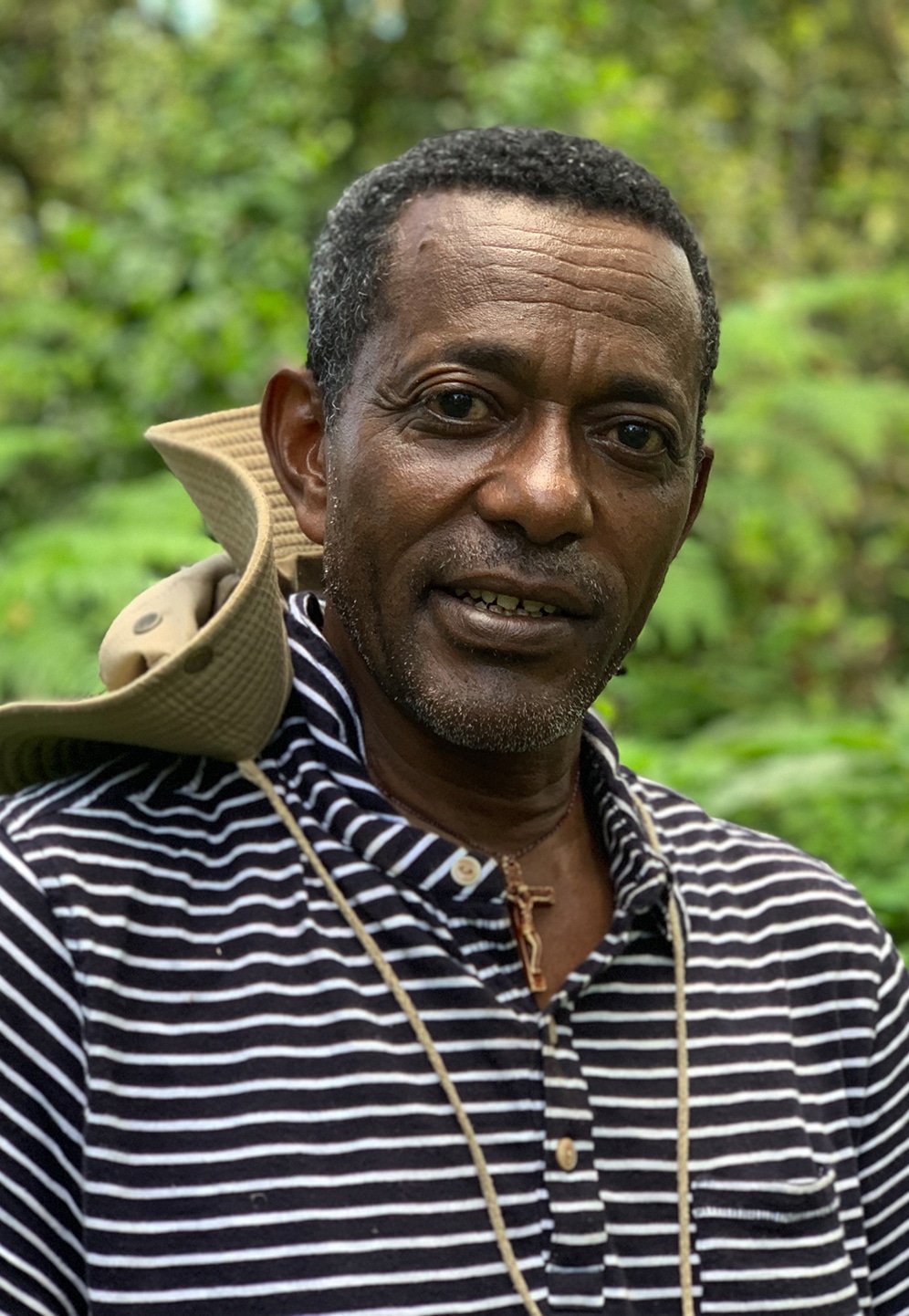We’d like you to meet
Negussie Tadesse
The Tatmara Coffee Plantation is situated near Bonga, the capital city of Kaffa in Ethiopia. Kaffa is by many considered the birthplace of coffee mainly because Arabica coffee is found growing wild in the surrounding forests, cultivated by the locals for centuries. Negussie Tadesse is the owner of the farm and bought the land and started farming coffee in 2010. The 80 hectare farm is basically a native forest. Apart from some small scale honey production, there is wild cardamom, long pepper and fruits growing amongst the coffee, which also attracts wild animals such as baboons and pigs who eat coffee cherries and can break the coffee trees.
For this reason Negussie is considering planting more fruit on the farm to distract the animals from eating the coffee cherries. Negussie doesn’t use any agricultural inputs or agrochemicals. The only work he is doing on the farm is to cut weeds manually in order to control the weeds and also make cover for the ground (mulch) to prevent the soil from drying out. He prunes the coffee trees and renews some of the old coffee trees that were already planted on the farm before he purchased the land. Due to the native forest canopy, the soil is really rich in organic material and microorganisms which help feed the coffee plants. This most likely contributes to the very high quality coffees from this farm.
Good cultivars (74110 and 74112), shade cover and ideal climatic growing conditions also help create unique coffees that in our opinion are unmatched outside of Ethiopia. There is no use of mineral fertilisers on the farm and Negussie is working on getting his farm Organic certified in the next few years.

How Negussie works
Coffee Production Process
Picking & Sorting
Ripe coffee cherries are hand picked by local pickers and delivered to the farm in the afternoon.
Drying & Fermenting
The coffee cherries are placed directly on elevated drying tables where they get dried in a thin layer. The cherries are constantly moved the first days to make sure they do not over-ferment. All over-ripe and slightly under-ripe cherries are removed by hand during drying to ensure only the fully ripe coffee cherries are dried together. During daytime the coffees are raked to ensure even drying and to prevent undesired fermentation from occurring. The drying process takes about 10 – 20 days depending on the climate and is finished when the moisture content in the coffee beans is between 10-12%.
Cleaning & Packaging
Once the cherries are finished drying, they are de-hulled before the coffee beans are transported to the mill where they get cleaned and sorted before packaging for export. The coffee was packed, exported and stored in jute bags with a grain pro bag liner.













